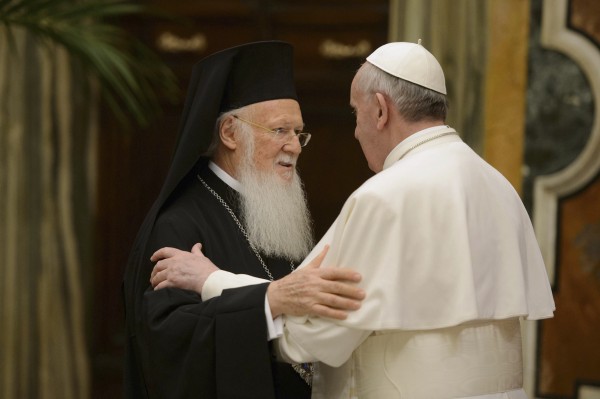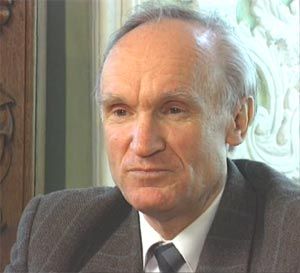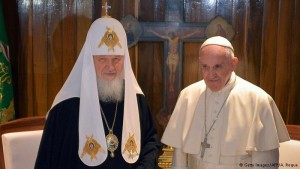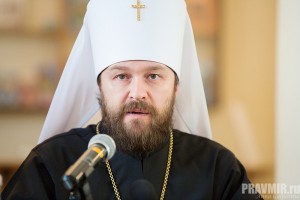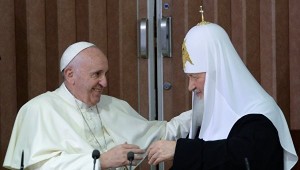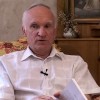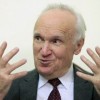Question: How can the meetings between Patriarch Bartholomew of Constantinople – and his predecessors – and the Pope of Rome be of value for Orthodoxy?
In order to answer this question, it is essential, first of all, to try to comprehend the essence of Catholicism and its nature.
Relations between Orthodox Christianity and Catholicism are complicated nowadays. There is always the risk of overstepping the line, the crossing of which may result in diverting drastically from one’s faith, the basics of spiritual and moral life, canons, and ritual practice – the entire Tradition. The Orthodox side’s opinion is quite definite. On the one hand, it is aimed at establishing and preserving good relations as far as possible. On the other hand, it requires great care in order that one’s faith would not be changed or harmed. This principle is fundamental for an Orthodox understanding of all relations connected with the search for Church unity. Otherwise, these relations may easily turn into secular politics and a diplomatic game unworthy of Christian beliefs.
If we look at the dialogue between Orthodoxy and Catholicism – which is actively initiated especially by the Patriarchs of Constantinople on the Orthodox side – it is primarily crucial to pay attention to the criteria of truth in the matters of the faith and life, which exist both in Orthodoxy and Catholicism.
The key feature of Orthodox Christianity is that it considers things that are only testified by the universal opinion of its saints to be true and irrefutable, because it is they as a whole that can provide the right understanding of the Gospels, the truths, and all the questions related to spiritual and moral life that they were told, due to their belonging to the Holy Spirit. [If we are talking about dialogue with Catholicism, we mean, first of all, the common saints of the first millennium AD.] This is a fundamental criterion of truth in Orthodox Christianity. Loyalty to it has given the Orthodox Church the opportunity to preserve its faith intact throughout its entire history.
However, we see another situation in Catholicism. There the teachings of the Holy Fathers have practically been replaced by the sole voice of the Pope of Rome who, according to the teaching of the Catholic Church, is endowed with a divine feature of accuracy in proclaiming the truths of faith and life, just because he was elected, not due to a special personal holiness. His archpastoral statements are automatically considered to be “permanent by themselves, not by the agreement of the Church,” in other words true. A Pope is not an ordinary head of the Church, as patriarchs are, for example, but he is a Vicar of Christ on Earth and has the full canonical authority over all bishops and the entire clergy of the Church. At the same time, he is an absolute monarch of Vatican City State, contrary to Jesus Christ Who said: “My Kingdom is not of this world” [John 18:36]. In this regard, it is essential to stress that this teaching, which is full of pride and lust for power, and has no Christian justification whatsoever, is the foremost dogma for Catholicism and for each Pope personally. This is the reason the Church of Rome seceded from the Universal Church and will never abandon this dogma.
I will cite two clear statements that illustrate how much this dogma leads to a distortion of the Christian faith. The famous theologian of the sixteenth century, Cardinal Bellarmine, gave the following explanation of its essence: “If the Pope should, through error or mistake, command vices and prohibit virtues, the Church would be bound to believe vices are good and virtues evil, unless it wished to sin against conscience. If he commands to consider something good and other things evil, the Church has to follow his command.” In unison the great Catholic saint, Catharine of Siena, declares: “Even if the Pope was the devil incarnate, I should not raise up my head against him”.
It is understandable how dangerous the belief is that the truths of the faith and life of the Church are infallibly determined by one person, regardless of his spiritual and moral condition.
It is no wonder how many other doctrinal delusions appeared in Catholicism as a result: related to the Church, the Atonement and Justification, the First Sin, the Filioque, the Immaculate Conception of the Virgin Mary, the Supererogation and the Treasure House of the saints, Purgatory, and all the Sacraments.
The real tragedy of the Catholic Church unfolds when we examine the manner of the spiritual life of its saints. There we can see especially well the deep abyss that separates their mystical life from the spiritual experience of the saints of the Church of the first millennium AD that are common for both the East and the West.
It is sufficient to cite several examples from the lives of the most authoritative Catholic saints in order to see a principal and complete difference between the Catholic and Orthodox Churches in regard to ascetic teaching.
Here is an illustrative example from a book by a modern Catholic author, Antonio Sicari, “Portraits of Saints,” in which he writes about the main and constant prayer of the Doctor of the Church, St. Catherine, to Jesus Christ: “Unite with me by marriage in faith!” “Jesus” appeared and put a ring on her finger as in agreement. After that she started to demand insistently from all people, and even Christ Himself, saying: “I want”, and to the King of France she wrote: “Fulfill God’s will and mine”.
Another Doctor of the Catholic Church, Teresa of Ávila, had a similar deeply delusional condition, to whom “Christ” came and stated: “From now on I am not merely your God, but also your Spouse.” This made her ecstatic.
St. Therese of Lisieux (nineteenth century), who was declared the last Doctor of the Church, followed in their footsteps directly. She thus described her meeting with “Christ”: “This was the kiss of love. I felt beloved and said, ‘I love You and entrust myself to You forever.’ There was neither pleading, nor struggle, nor sacrifice. Long before that, Jesus and little Thérèse had looked at each other and understood everything… But on that day it was more than a meeting – it was a complete fusion. We were no longer two, for Thérèse had disappeared like a drop of water lost in the mighty ocean”.
Is it not obvious what kind of humility and holiness, and which “Christ,” these romances describe? These romances were born in a church that taught these nuns this completely distorted understanding of the spiritual life.
There is another example of the most authoritative Catholic saint, Francis of Assisi, who during his prayer, “felt completely turned into Jesus.” Then bleeding wounds appeared on his hands, feet, and his side – stigmata. Stigmata are a telltale sign of a state of exaltation caused by anything but a blessing. We can see this occurrence only in Catholicism. There is not a single saint of the Church, even the greatest ones starting from the Virgin Mary and the Holy Apostles, who was aware of this occurrence. Surprisingly, St. Francis said before his death: “I am not aware of any sin on my part that I have not redeemed through confession and repentance.”
But how did all the saints of the Universal Church feel in the East and the West? St. Pimen the Great (forth century) said: “Believe me, brothers, I will be thrown into the same place where the devil will be.” St. Sisoes (fifth century) said dying: “Honestly I do not know if I have even begun my repentance.” Both of them resurrected the dead.
Therefore, I am bewildered to see the reason for and the true goal of this active search for unity with the thing that is disastrous for each Christian and Orthodox Christianity.
Indeed, the basics of the spiritual life of the Holy Fathers appear to be completely destroyed in Catholicism. The things that the Holy Fathers named a devilish delusion are considered to be a special way of holiness in the West. Thus, it was a complete and irreversible secession of Western Christianity from the only source of the true understanding of the Divine Revelation – the real religious experience of the Holy Fathers, which Orthodoxy still preserves and takes nourishment from.
Therefore many Russian saints, such as Sts. Paisius Velichkovsky, Ignatius (Brianchaninov), Theophan the Recluse, Ambrose of Optina, and John of Kronstandt, wrote that the Roman Church had lapsed into heresy and delusion long before.
I am saying all of this to make it clear with whom Orthodoxy is having the dialogue and what prospects we can expect.
What is the view of the Catholic Church on the Orthodox Churches?
In his letter to the conferences of bishops in 2000, Cardinal Ratzinger, Prefect of the Congregation for the Doctrine of the Faith of Vatican (Pope of Rome between 2005-2014) stressed that: “the phrase ‘sister Churches’ is not applicable in the relations between Catholics, Orthodox Christians, and Protestants. We can only speak about the Catholic Church itself and some doctrines in the East.” According to his words, “when we speak about the Church, we mean the only, holy, universal, apostolic, and Catholic Church.” The cardinal pointed out that only local churches of the Catholic Church could be called sister Churches and added that he is against “primitive ecumenism.”
What is the source of such pro-Vatican steps of the Patriarchs of Constantinople – their prayers with the Pope, the statements that unity with Rome is essential – when the difference between Catholicism and Orthodoxy is so obvious, fundamental, and principal? It is absolutely clear what people mean by saying “complete unity.” It will be, first of all, not the unity, but the submission of the Orthodox Churches to Rome. Secondly, the degradation of Orthodox teaching will occur inevitably. And finally, a total distortion of the patristic basics of spiritual life will take place, which are the only basis a Christian can use to build a house of his or her salvation.
It is evident that the search for the Kingdom of God and His righteousness slips from the Christian mind further and further away, both in the West and in the East. The concept of “church unity” turns into a beautiful motto with increasing frequency, behind which we can notice politics that are distinctly destructive for spiritual life of believers, in other words the Church of Christ.












